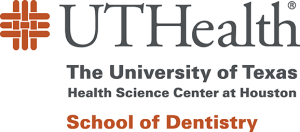Children, teenagers, and adults may suffer from OMDs. OMDS may interfere with normal growth and development of the muscles and bones of the face and mouth. OMDs may also interfere with how the muscles of the face and mouth are used for eating, talking, and breathing. People who have an OMD may also have problems with talking, swallowing, and breathing through their nose. Some children push out their tongue when they talk, drink, or eat. This is called tongue thrusting or fronting, and it is one type of OMD.
Signs and Symptoms
Just because a person has some or all of these symptoms does not mean that they have an OMD. Always see a professional for more information.
Some signs of an OMD may include the following:
- Someone who always breathes through the mouth or has difficulty breathing through the nose.
- Limited tongue movement.
- Eating may be messy or difficult. Keep in mind that it is normal for babies to stick their tongue out and push food out of their mouth. Over time, they do this less.
- An overbite, underbite, and/or other dental problems.
- The tongue pushing past the teeth, even when a person is not talking or using the tongue.
- Difficulty saying some sounds, like "s" in "sun," "sh" in "ship," or "j" in "jump."
- Drooling, especially beyond age 2.
- Difficulty closing the lips to swallow.
Causes
There is not a known, single cause of OMDs. OMDs may be caused by several factors:
- Blocked nasal passages because of tonsil size or allergies. When the nasal passages are blocked, people may need to breathe through their mouth instead.
- Anything that causes the tongue to be misplaced at rest or makes it difficult to keep the lips together at rest.
- Sucking and chewing habits past the age of 3 years.
American Speech-Language-Hearing Association. (n.d.). Orofacial myofunctional disorders. American Speech-Language-Hearing Association. Retrieved April 18, 2022, from https://www.asha.org/public/speech/disorders/orofacial-myofunctional-disorders/

